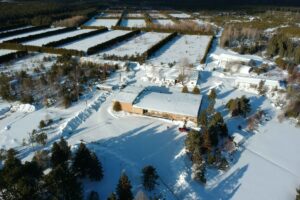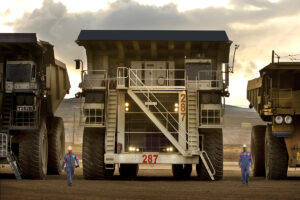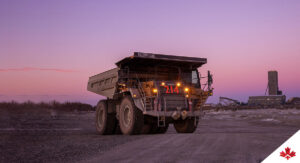Vancouver, B.C. – Three quarters of British Columbians would like to see the province become a world leader in supplying critical minerals that are vital to clean technologies and fighting climate change, according to a recent survey undertaken for the Mining Association of British Columbia (MABC) by Spark*Insights and Abacus Data.
“There is strong public support and recognition of the importance of critical minerals in every region of our province, across generations, and across the political spectrum,” said Michael Goehring, President and CEO of MABC. “Critical minerals are the essential building blocks for clean technologies like solar panels, wind turbines, batteries, and electric vehicles. Without them we can’t reach our climate goals.”
“The need for critical minerals has changed the conversation on mining. Today, British Columbians see responsible mining as a way to grow our economy and fight climate change,” said Goehring.
Many of the minerals on Canada’s critical minerals list are found or produced in British Columbia, including aluminum, antimony, bismuth, cadmium, chromium, cobalt, copper, germanium, indium, lead, molybdenum, niobium, silver, tantalum, tungsten, and zinc. BC is also home to rare earth minerals, and two world-class nickel deposits. All are vital to the environmental, economic and national security goals of Canada and our allies.
The survey found over 80 per cent of British Columbians support the province’s mining sector. Eighty-eight per cent of British Columbians view economic opportunities from mining as excellent, very good, or good, while 73 per cent say the environmental standards that apply to BC mining are excellent, very good, or good.
“We are very pleased with British Columbians’ high level of support for mining and the widespread recognition that we mine responsibly and safely, while providing economic benefits for Indigenous and local communities throughout the province,” said Goehring.
When asked whether they want to see more or less mining investment and jobs in BC, 72 per cent of British Columbians said they support the provincial government taking steps to encourage more investment and jobs in BC mining.
“British Columbia residents are broadly supportive of public policy that encourages investment and job growth in mining. The public sees significant benefits from mining, including good jobs, opportunities to advance economic reconciliation with Indigenous people and secure revenue for the provincial government,” noted Goehring.
The survey also explored views on permitting and authorizations processes for new mines. When informed it can take up to 15 years to obtain government approvals to build a new mine, 64 per cent of respondents felt it should be possible to reduce regulatory complexity and permitting timeframes without compromising environmental protection or health.
“The most revealing finding in our data is the public enthusiasm for mining and the significant support in British Columbia for supplying the critical minerals the world needs to transition to a low carbon future,” said Bruce Anderson, Chief Strategy Officer and Partner of Spark*Insights. “British Columbians are broadly interested in seeing the province play a leadership role in critical minerals, and are open to a variety of ideas that make it possible for BC to permit mines in a timelier way.”
To access MABC’s polling data on public perceptions of British Columbia’s mining sector, please visit:
About the Mining Association of British ColumbiaMABC is the voice of the British Columbia’s steelmaking coal, metal and mineral producers, smelters, and advanced development companies. Our industry benefits all British Columbians and supports more than 35,000 jobs and over 3,700 small, medium, and indigenous affiliated businesses in every corner of the province through an annual spend of nearly $3 billion on goods and services. Our members’ products have among the lowest carbon footprints globally and are helping the world transition to a cleaner, low-carbon future; safely and responsibly.
About the SurveyBruce Anderson of Spark*Insights, along with Abacus Data, conducted a province-wide survey of 1,000 BC residents aged 18 and over. Field work was carried out from January 12th to 19th, 2023. The margin of error for a comparable probability-based random sample of the same size is +/- 3.10%, 19 times out of 20. The data were weighted according to census data to ensure that the sample matched British Columbia’s population according to age, gender, and region.
For more information
Kristen OlvetKristen.Olvet@hkstrategies.caCell: 604-657-1292
This article was published by: admin
Visit the original article here



